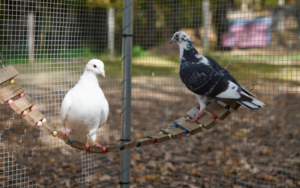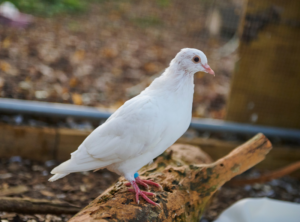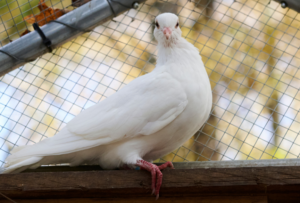Pigeons Are Being Used In Cancer Research

Athough they may get a bad rap, pigeons are actually super smart. So smart in fact, that using their incredible bird brains, they have been able to help with cancer research.
A study by Levenson, et al. showed that when trained pigeons are actually extremely good at telling apart malignant from benign tumors. Individually, they have an 80% accuracy rate but as a group they managed to get that up to an astounding 99% accuracy!

For many humans, they need 8 years of medical school to be able to pull of such a feat. So how did they train the pigeons to do this in just a matter of weeks? Simple. Positive reinforcement using food rewards every time they were successful at telling the type of tumors apart.

Three experiments were conducted for telling various aspects of tumors apart. With the first one, they looked at full color histopathology. In a mere 15 days, the pigeons accuracy rate for detecting cancer rose from 50% to 85%! That’s crazy!
Similarly in a second experiment, they were told to find ones with micro-calcifications. In just 2 weeks, they went once again from a 50% accuracy to a 85% accuracy. The scientists conducting the study did various things to the images such as rotating them and this caused little variation in success.
Determining if a mass is malignant or benign from a mammogram was thought to be the most challenging. Pigeon success rate varied greatly but in 10 days of training, certain pigeons were able to get up to an 80% accuracy.
The most remarkable thing is that when put in groups of 4 pigeons, the success rate of these experiments rose to an astonishing 99% accuracy. What this means is that if anyone ever tells you that you have a bird brain, you should thank them for the incredible compliment.
Article Source:
Pigeons (Columba livia) as Trainable Observers of Pathology and Radiology Breast Cancer Images
Levenson RM, Krupinski EA, Navarro VM, Wasserman EA (2015) Pigeons (Columba livia) as Trainable Observers of Pathology and Radiology Breast Cancer Images. PLOS ONE 10(11): e0141357. https://doi.org/10.1371/journal.pone.0141357
